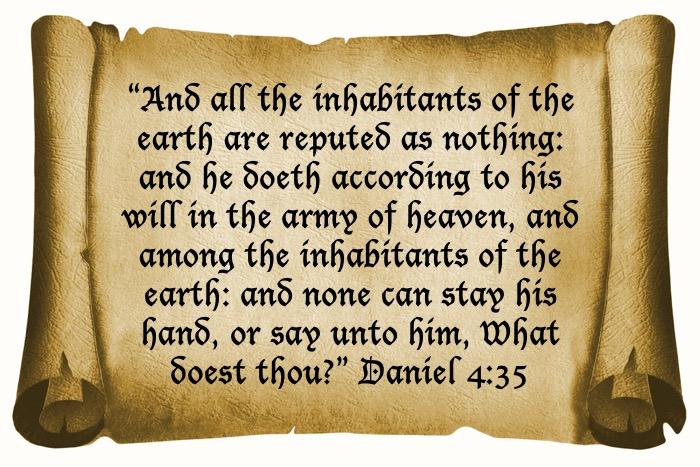Can We Blame God For The Evil In The World?
Can We Blame God For The Evil In The World?

Introduction:
Isn’t God the one who gave us life, knowing what we would do with that life? Doesn’t God know what He causes and causes what He knows? Can we be blamed for the evil in the world if God is all powerful and all knowing? Let’s now take a look at what Gordon H. Clark said about these issues in his book titled “Omniscience, God and Evil“.
Omniscience, God and Evil:”
Not only does free will fail to relieve God of culpability, and permission fail to coexist with omnipotence, but the Arminian position can find no logical position for omniscience either. A Romanist-Arminian illustration is that of an observer on a high cliff. On the road below, to the observer’s left, a car is being driven west. To the observer’s right a car is coming south. He can see and know that there will be a collision at the intersection immediately beneath him. But his foreknowledge, so the argument runs, does not cause the accident. Similarly, God is supposed to know the future without causing it. The similarity, however, is deceptive on several points. A human observer cannot really know that a collision will occur. Though it is unlikely, it is possible for both cars to have blowouts before reaching the intersection and swerve apart. It is also possible that the observer has misjudged the speeds, in which case one car could slow down and the other accelerate, so that they would not collide. The human observer, therefore, does not have infallible foreknowledge. No such mistakes can be assumed for God. The human observer may make a probable guess that the accident will occur, and this guess does not make the accident unavoidable; but if God knows, there is no possibility of avoiding the accident. A hundred years before the drivers were born, there was no possibility of avoiding the accident. There was no possibility that either one of them could have chosen to stay home that day, to have driven a different route, to have driven a different time, to have driven a different speed. They could not have chosen otherwise than as they did. This means either that they had no free will or that God did not know.
“Known unto God are all his works from the beginning of the world.” Acts 15:18
Suppose it be granted, just for the moment, that divine foreknowledge, like human guesses, does not cause the foreknown event. Even so, if there is foreknowledge, in contrast with fallible guesses, free will is impossible. If man has free will, and things can be different, God cannot be omniscient. Some Arminians have admitted this and have denied omniscience, but this puts them obviously at odds with Biblical Christianity. There is also another difficulty. If the Arminian or Romanist wishes to retain divine omniscience and at the same time assert that foreknowledge has no causal efficacy, he is put to it to explain how the collision was made certain a hundred years, an eternity, before the drivers were born. If God did not arrange the universe this way, who did?
If God did not arrange it this way, then there must be an independent factor in the universe. And if there is such, one consequence and perhaps two follow. First, the doctrine of creation must be abandoned. A creation ex nihilo would be completely in God’s control. Independent forces cannot be created forces, and created forces cannot be independent. Then, second, if the universe is not God’s creation, his knowledge of it – past and future – cannot depend on what he intends to do, but on his observation of how it works. In such a case, how could we be sure that God’s observations are accurate? How could we be sure that these independent forces will not later show an unsuspected twist that will falsify God’s predictions? And, finally, on this view God’s knowledge would be empirical, rather than an integral part of his essence, and thus he would be a dependent knower. These objections are insurmountable. We can consistently believe in creation, omnipotence, omniscience, and the divine decree. But we cannot retain sanity and combine any one of these with free will.
Additional Information On Free Will, God’s Foreknowledge & Open Theism:
- What is open theism?
- Does God change His mind?
- What does it mean that God is sovereign?
- What is the difference between God’s sovereign will and G
- Does Man Have Free Will?
- Do Human Beings Have a Free Will?



















